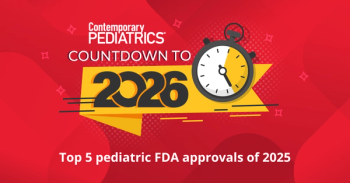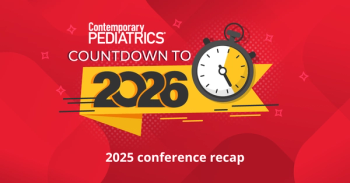
Kids losing ASD diagnosis still need ongoing care
Children who are diagnosed with autism spectrum disorder (ASD) during their toddler years may be able lose the designation as they grow up but will continue to have certain ongoing behavioral and special education needs, according to a new study.
Children who are diagnosed with
One in 68 children is currently diagnosed with ASD, according to the
READ: ICD-10: What you need to know
Whereas ASD can be reliably diagnosed at age 2 years, children aren’t identified with having ASD until age 4 on average. However, parents with children who later are diagnosed with ASD usually noticed some sort of
Although the resolution of the ASD diagnosis by a child’s school years is not a new discovery, a team of researchers studied a group of children in the Bronx who were diagnosed early and well documented as they progressed through their disorder. The goal was to identify what obstacles children who lose their ASD diagnosis must still overcome as they move forward, and how pediatricians can guide them.
Lisa Shulman, MD, neurodevelopmental pediatrician and director of Infant and Toddler Services and the Rehabilitation, Evaluation, and Learning for Autistic Infants and Toddlers program at the
“Autism generally has been considered a lifelong condition, but 7% of children in this study who received an early diagnosis experienced a resolution of autistic symptoms over time,” Shulman says. The question, however, is what special needs might these children continue to have after the resolution of their ASD symptoms?
DON'T MISS: Mobile clinic to the rescue
"When an early ASD diagnosis resolves, there are often other learning and emotional/behavioral diagnoses that remain," Shulman says. "Understanding the full range of possible positive outcomes in this scenario is important information for parents, clinicians and the educational system."
Shulman and her team based their research on data collected from a cohort of 569 children diagnosed with ASD by a multidisciplinary team at a university-affiliated, early-intervention program between 2003 and 2013 using
Although some of the children in the cohort lost their ASD diagnosis and improved their cognitive functioning over time, Shulman and her team discovered that 92% of children whose ASD symptoms resolved still had a variety of learning, emotional, and behavioral problems that needed to be addressed. Nearly 70% of those children had language and learning disabilities, and about 50% had externalizing problems such as
Of those children who lost their ASD diagnosis but still required academic support, 13% were in mainstream academic settings with support, 29% were in integrated settings, and 21% were in self-contained classes. Another 26% of the children who lost their ADS diagnosis were in mainstream academic settings without any additional support, Shulman says.
“This study has as a presupposition that there are such children who do unusually well in terms of improvement in original ASD symptomatology and who appear to have resolution of an early well-documented ASD diagnosis on standardized ASD instruments at follow-up,” Shulman says. “In recent studies these children have been referred to as having an ‘optimal outcome.’”
Optimal outcome is defined as a child who no longer meets criteria for ASD on standardized instruments, has achieved
READ: Spina bifida: Top 10 things for physicians to know
Shulman says her team was interested in learning more about the challenges that are left after the resolution of
“While this set of residual issues has been referred to in other studies, we had the data to show the specific types of challenges they face as well as the frequency. We also were able to give a denominator to allow calculation of the frequency of optimal outcome-the percent of children in our community sample of children with early diagnosis of ASD who had this unusually good outcome (7%)-which was also important information to put the findings in context. The other finding of interest that was novel from the study is that the children whose ASD symptomatology resolved generally also had a very significant improvement in their cognitive functioning. Also, this was a very diverse population, one that is rarely represented in other outcome studies.”
The goal of the study was to characterize residual learning, cognitive, emotional and behavioral, and educational needs of children whose ASD diagnoses were resolved. Shulman says she hopes to continue her studies on ASD resolution with another control group next year. She presented the current study before the Pediatric Academic Societies in April, and the abstract is available
The study was funded by a grant from the Children's Evaluation and Rehabilitation Center, Rose F. Kennedy Intellectual and Developmental Disabilities Research Center.
Newsletter
Access practical, evidence-based guidance to support better care for our youngest patients. Join our email list for the latest clinical updates.








